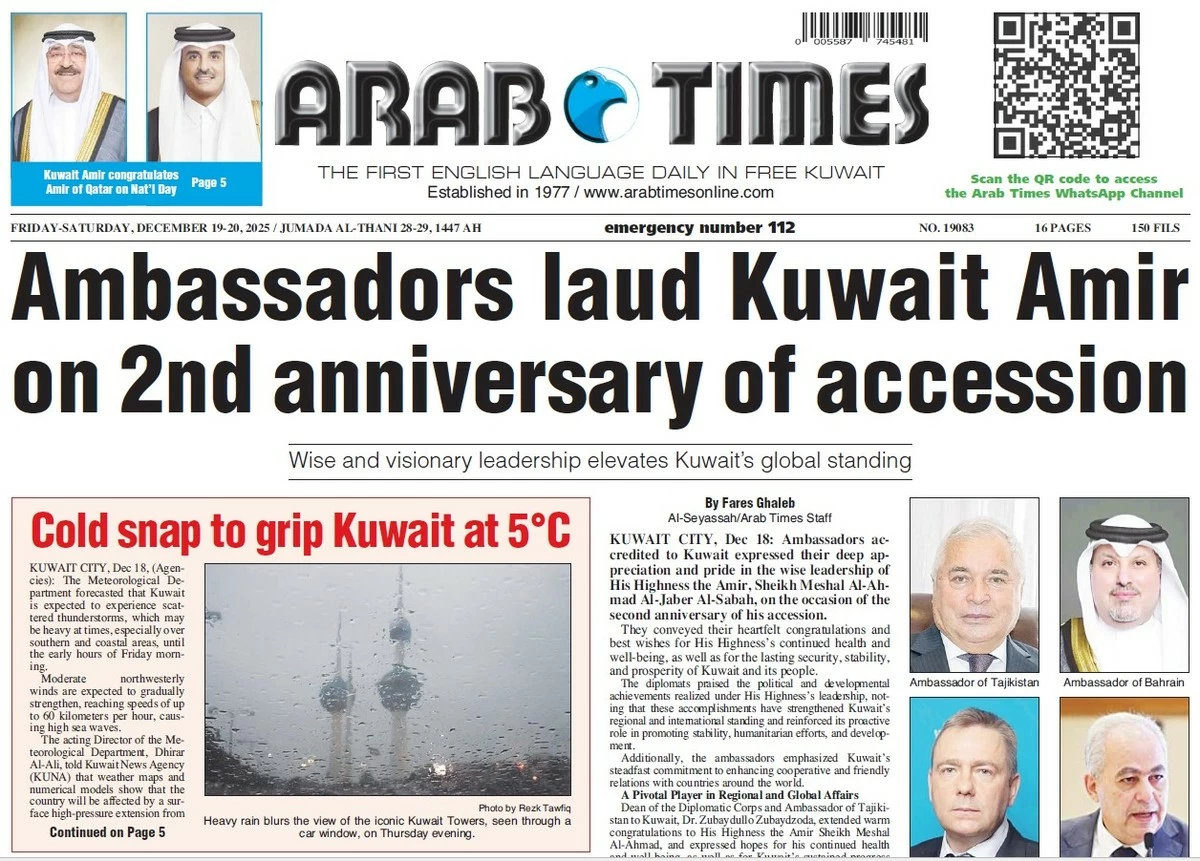PEOPLE always talk about the national economy, the need to diversify the sources of national revenues, and the search for alternative revenues to strengthen the national product. We hear a lot of explanations and talks in this regard; yet the core of the issue remains unaddressed either due to a lack of seriousness or the absence of a clear vision, particularly when it comes to the capital cycle and rectifying existing shortcomings.
In truth, diversifying income sources is the basis of development. However, all our troubles will persist unless we open the taps to allow for well-calculated expenditures. Otherwise, we will remain trapped in a fantasy world filled with slogans and statements that are disconnected from reality. When income sources run dry, the economy begins to suffer from an accumulated deficit, leading to contraction and a decrease in the national product, which negatively impacts society. Undoubtedly, strengthening the economy protects the state from many problems and crises, especially if capital is recycled wisely.
To better understand how expenditure can drive national economic growth, the following story about a concept known as Quantitative Easing (QE) could perhaps be useful: In a small, struggling town that was facing severe economic difficulties, everyone was drowning in debt and relying on borrowing. One day, a tourist arrived in that town and headed straight to the only modest hotel to book a room. The first thing he did was place $100 on the reception counter before heading upstairs to inspect the rooms.
Meanwhile, the hotel owner took advantage of the situation by quickly grabbing the $100 and rushing to the butcher to pay off his debt. The butcher accepted the money and went to the livestock dealer to settle part of his debt. The livestock dealer then paid the $100 to the animal feed trader, who in turn used it to pay the truck driver who brings feed from a distant town. The truck driver, upon receiving the money, hurried to the hotel where he usually stays during his trips to town and used the $100 to pay off what he owed to the hotel owner. When the tourist came back down from the upper floor, he found no suitable room, decided to leave, and took back the $100 from the counter.
In the end, none of the townspeople made any profit, but everyone managed to pay off their debts. This sequence, in economic terms, is known as Quantitative Easing (QE). However, in reality, the result was zero because the money eventually returned to the tourist, who represents the state. Through the real capital cycle, the money flowed back to him, thus strengthening the financial cycle on one hand, and reviving the economy and boosting the national product on the other.
This story is a simplified example of how countries operate similarly. When a state suffers from mismanagement and poor decision-making, it faces deficits due to a lack of expertise in proper governance or, at times, as a result of envy-driven decisions. On the other hand, some countries prioritize expenditure on developing projects, promoting citizen welfare, and building partnerships with international institutions or other countries to strengthen their national economies. Last week, His Highness the Amir Sheikh Meshal Al-Ahmad Al-Jaber Al-Sabah, along with His Highness the Crown Prince Sheikh Sabah Al- Khaled, met with the Chairman and CEO of BlackRock, Larry Fink.
During the meeting, His Highness the Amir stressed the importance of supporting investment and economic opportunities, creating a competitive environment, and enhancing strategic cooperation with foreign companies. He also stressed the need to diversify the production base to transfer and localize knowledge, attract capital, and support the development of Kuwaiti human resources to strengthen the national economy. A few days ago, it was announced that the assets of the Kuwait Sovereign Fund had exceeded one trillion US dollars.
This news calls for optimism in bringing about a healthy environment for the national economy, especially if it leads to increased expenditure on service, entertainment, and production projects that help industries overcome obstacles inherited from the previous era.
If the efforts to combat corruption bear fruit, and if the planned steps continue to progress as intended, this will require, first, greater transparency and, second, a significant increase in expenditure to revitalize the economy. Currently, we hear about many important projects in the works. Some of them were signed between Kuwait and other countries, and others involved international companies. It is good to hear that the public debt law is set for imminent amendment.
However, the most important step is to invest a large portion of sovereign funds in national projects, which will boost national production in the long term and push the economy forward. Many of these projects will generate revenue, either through collected fees or potential taxes. Most countries invest their sovereign wealth domestically, which strengthens the economy, raises the per capita income, and shields the country from crises. On the other hand, countries that restrict expenditure see higher corruption rates and rising poverty. As the saying goes, poverty is the root cause of many societal diseases.
Ahmed Al-Jarallah
Editor-in-Chief, the Arab Times



